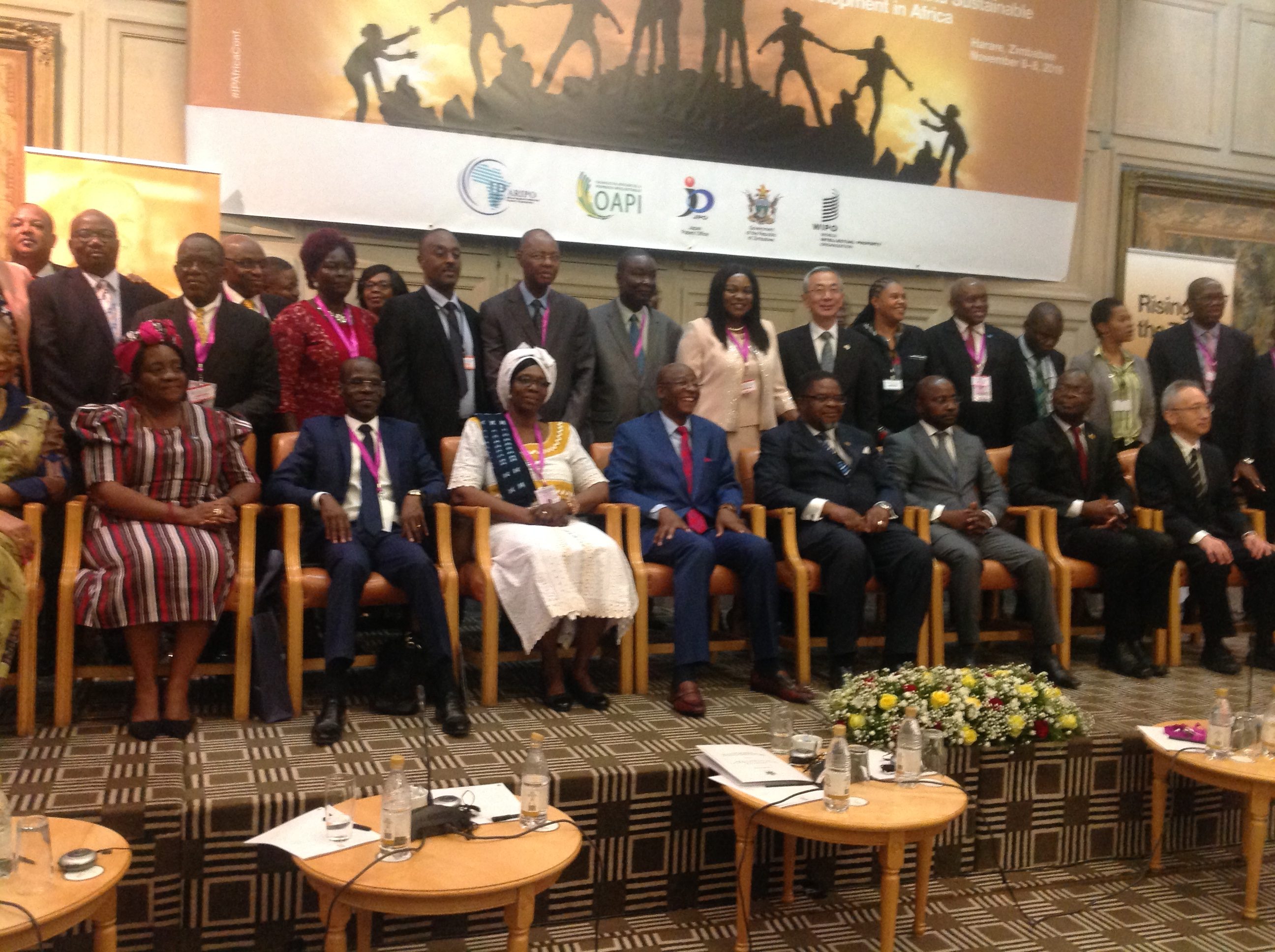By Byron Mutingwende
The conference in Zimbabwe on intellectual property (IP), innovation and value addition for business competitiveness and sustainable development is set to put Africa on course to compete globally in terms of innovation.
Officially opening the conference in Harare running from 6 to 8 November 2019 yesterday, Hon Ziyambi Ziyambi, Zimbabwe’s Minister of Justice, Legal and Parliamentary Affairs said the meeting provided a platform for African countries to map the way forward on the dynamics of setting the continent on global competition in terms of innovation.
He said Zimbabwe adopted the Education 5.0 model for higher and tertiary education aimed at production of goods and services and value creation at higher learning institutions.
“The World Intellectual Property Organisation (WIPO) has been assisting its member states in developing a balanced international IP legal framework to meet society’s evolving needs, and it provides free access to unique knowledge banks of IP information
“In that respect, the country through the Zimbabwe Intellectual Property Office has embarked on a project for the establishment of Technology and Innovation Support Centres (TISCs). The project aims to reduce the technical and scientific knowledge gap and to stimulate innovation and economic growth by facilitating access to technological information and by strengthening Zimbabwe’s capacity to exploit this information effectively. This together with our efforts seeks to stimulate a dynamic, vibrant and balanced IP rights system in Zimbabwe to foster creativity, innovation and value addition for business competitiveness and sustainable development in Zimbabwe,” Hon Ziyambi said.
The conference is taking place when African countries have become aware of the importance of IP as a powerful tool for economic growth. Many countries are formulating and reviewing their IP policies in an endeavour to nurture and anchor the IP system in order to foster innovation, competitiveness and value addition.
The Zimbabwe National Intellectual Property Policy and Strategy (ZNIPPS) was launched in 2018 and provides direction and clarity on the development of the IP system through the consolidation of efforts across all sectors of the economy.
Mr. Fernando dos Santos, the Director-General of the African Regional Intellectual Property Organisation (ARIPO) applauded the partnership and support of the African Intellectual Property Organisation (OAPI), the Economic Community of West African States (ECOWAS) as well as WIPO for its continued effort to implement the 45 recommendations of the WIPO development agenda, an initiative aimed at balancing approach of IP that is more supportive of innovativeness and competition.
He said since its inception, ARIPO has played a pivotal role in fostering creativity and innovation for economic growth and development in the member states and Africa as a whole. He said the organisation had grown to become the IP hub in Africa.
“With 19 member states which will soon see additional member states, the organisation represents a population of 230 million inhabitants spread in 7 million square kilometres with a GDP 368 billion US dollars. However, it was noted that there is a low uptake of the IP system by African innovators and the disproportionate number of IP rights that are filed by non-residents suggests the regional system is not yet serving the local innovators and eventually is not aligned with the national development policies, a situation that needs to be corrected,” Mr. dos Santos said.
ARIPO has put in place robust IP services, adopted new Protocols on Traditional Knowledge and Folklore on the Voluntary Registration and Notification of Copyright works.
To raise awareness on the crucial role that IP can play in the development of the continent and to address the lack of skills in IP, ARIPO established an IP Academy in 2006 with the mandate to develop training programmes focusing on two key areas of concern namely general training programmes (awareness enhancement) and professional training programmes (skills enhancement).
The Minister of Justice and Constitutional Affairs of Malawi, and Chairman of the Council of Ministers of ARIPO, Hon Bright Msaka hailed the discussion and exchange of views on how Africans can effectively harness the potential of IP system to promote innovation and value addition for business competitiveness and sustainable development in Africa.
“As most delegates are aware, the United Nations Sustainable Development Goal Number 9 recognises the role of innovation in driving sustainable development. In fact, achievement of SDG9 is considered critical to the attainment of other SDGs. The imperative of innovation, therefore, underpins the need for increased attention to the role of the IP system for stimulating innovation and value addition for business competitiveness on our continent, Hon Msaka said.
ARIPO has established three post-graduate degree programmes in three universities in ARIPO member states. These are Africa University in Mutare in Zimbabwe, the Kwame Nkrumah University in Kumasi in Ghana and the University of Dar es Salaam in Tanzania.
Professor Amon Murwira, the Minister of Higher and Tertiary Education for Zimbabwe bemoaned the fact that the knowledge about intellectual property and innovation was not translating into tangible innovation and development. He encouraged adoption of education that brings positive results through innovation and creativity.
